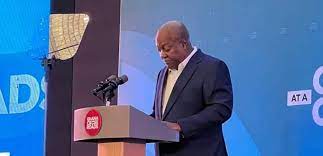Ghana to Establish Special Courts to Prosecute Audit Infractions

The government of Ghana has announced plans to establish dedicated “special courts” to expedite the prosecution of persons and institutions implicated in audit findings of the Auditor‑General’s Department (AGD).
What’s happening
- According to media reports, the Cabinet has approved the creation of these courts to handle cases arising from audit irregularities, mis-management of public funds, procurement breaches and other infractions flagged in the AGD’s reports.
- In a recent address, former President John Dramani Mahama emphasised the need for a “fast-track process” to hold guilty parties responsible for audit-identified infractions.
- The move comes as the 2024 audit report revealed irregularities amounting to approximately GHC 18.4 billion, with over 80 % considered recoverable debts or advances.
Why this matters
- For many years, audit reports from the Auditor-General have flagged millions and billions of cedis in unaccounted expenditures, procurement breaches, un-remitted taxes, ghost names on payrolls and other financial irregularities.
- One of the major problems has been the delay in prosecutions or recoveries, which has undermined public trust in accountability and governance. This new court mechanism is aimed at closing the gap between audit findings and enforcement.
- A dedicated court or fast-track forum could lead to swifter hearings, more timely judgments, and stronger deterrence of future infractions.
How it will work (based on current information)
- Cases flagged by the Auditor-General will presumably be forwarded to the courts for prosecution rather than being bottlenecked in a general justice process.
- The design of the special courts remains under discussion: for example, the precise jurisdiction, whether the courts will be temporary or permanent, the staffing and operational modalities have not all been publicly detailed.
- The law that supports audit surcharges, disallowances and related legal enforcement is grounded in Article 187 of the 1992 Constitution of Ghana.
Challenges and considerations
- Judicial independence: Some commentators have warned that while the fast-track proposal is laudable, care must be taken to preserve the independence of the Judiciary and avoid executive interference.
- Capacity and resources: Simply creating courts is not enough – effective investigation, prosecution, case management and enforcement require sufficient human, financial and institutional capacity.
- Backlog of cases: A large stockpile of audit findings and surcharges awaits enforcement; a special court will face the dual challenge of clearing legacy cases and handling new ones.
- Legal guarantee of rights: Those accused have rights of appeal and due process. Implementing fast-track justice must not compromise fair trial standards.
What to watch next
- Whether legislation or regulations will be introduced to formally establish the courts (or expansion of existing courts) and define their powers.
- The first set of cases referred and how quickly they proceed through the system – this will be a test of whether the mechanism is effective.
- The scale of recoveries and convictions achieved under the new system – which will indicate its real impact.
- Whether institutions such as the Office of the Special Prosecutor (OSP) or economic-crime units will coordinate with the special courts for audit-related cases.
www.nsemgh.com

